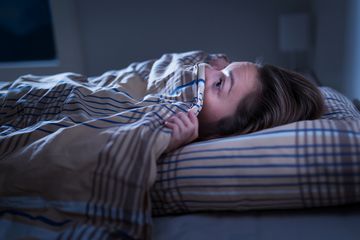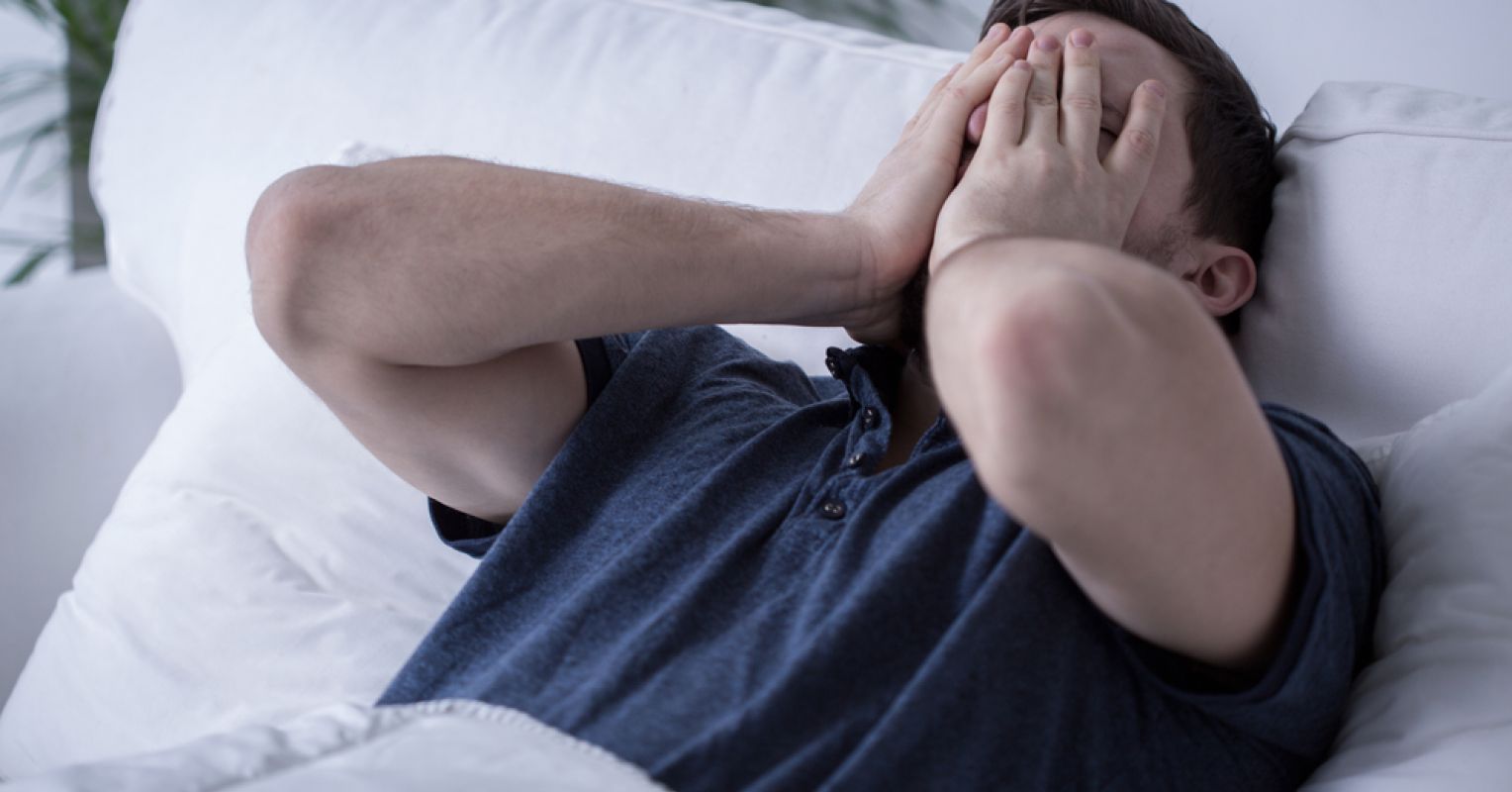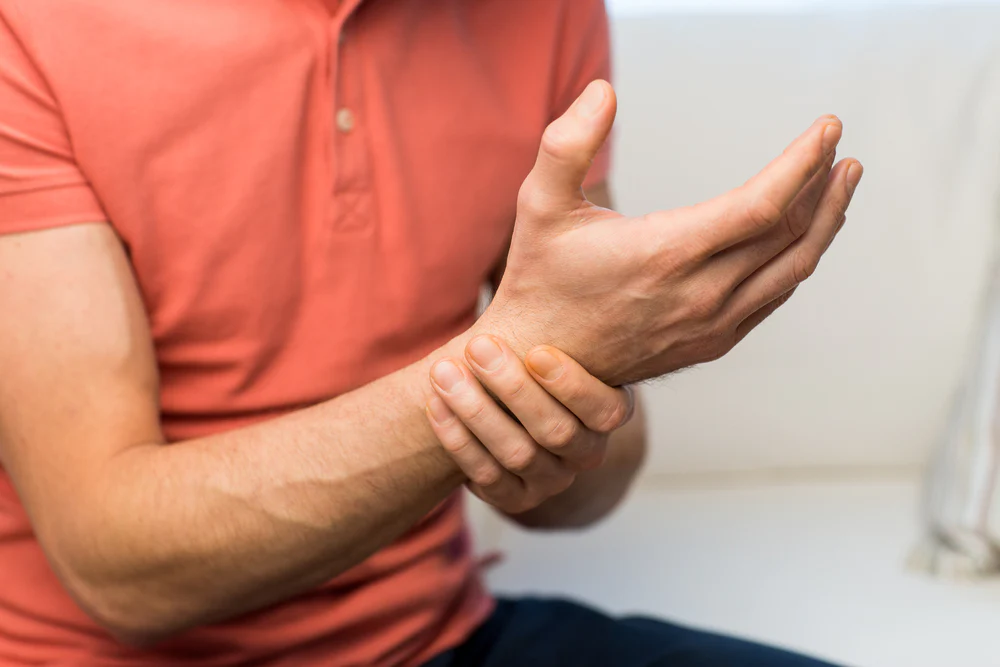Sleep Disorders and Conditions
Understanding Hypnic Jerks: What They Are and How to Deal with Them
Are you one of the many people who have experienced sudden jolts while falling asleep? These involuntary muscle contractions are known as hypnic jerks, also called sleep starts or hypnagogic jerks. Although they can be intense enough to wake you up, hypnic jerks are usually harmless and a natural part of the sleep initiation process. About 70% of the population experiences them occasionally, and up to 10% have them daily. Some people may also experience accompanying symptoms such as dreaming of falling, rapid heartbeats, or breathing. This blog will help you understand what hypnic jerks are, why they happen, and how to cope with them. By learning more about hypnic jerks, you can alleviate any concerns and sleep more soundly.
Why Do We Twitch in Our Sleep? Exploring the Causes of Hypnic Jerks
Hypnic jerks, also known as sleep twitches, are a common occurrence during sleep. But why do we experience these involuntary muscle movements? Here are some possible explanations:
Primate Ancestry Hypothesis: Some experts believe that our primate ancestors, who slept in trees, tensed their muscles to brace for impact if they fell. These sleep jerks might be remnants of that reflex. When we relax in bed, our brains may misinterpret it as falling out of a tree, causing our body to tense up. This can explain the feeling of falling or being startled in our dreams.
Brain "Misfiring": Another possible explanation is that the brain "misfires" as we transition from wakefulness to sleep. Hypnic jerks usually happen when our muscles start to relax as we drift off to sleep. However, motor areas of the brain can be stimulated spontaneously during this time, and the brain may misinterpret this as wakefulness during the transition to sleep.
External Factors: In addition to the above explanations, external factors can also contribute to hypnic jerks. These include:
Exercising in the evening, which can make it harder for the body to relax when it's time for bed.
Consuming stimulants such as caffeine, nicotine, or certain medications that can disrupt the sleep schedule.
Living a high-stress lifestyle, which can keep the brain active and make it difficult to fall asleep.
External sleep disruptions such as loud noises, bright lights, or a partner working in bed next to you, which can hinder the ability to enter deep sleep.
Hypnic jerks are generally harmless and not a cause for concern. However, if they are frequent and disruptive to your sleep, it may be worth speaking to a healthcare provider to rule out any underlying sleep disorders. By understanding the causes of hypnic jerks, we can take steps to improve our sleep and overall well-being.
How to Stop Twitching While Sleeping: Tips to Improve Your Sleep
If you experience hypnagogic jerks or sleep starts while sleeping, there are ways to help reduce them. Here are some tips that may help:
Exercise earlier in the day
Physical activity is important for healthy sleep, but avoid intense exercise too close to bedtime as it may disrupt sleep.
Stop moderate-intensity exercise at least 90 minutes before your nightly pre-sleep routine to allow your body to return to conducive levels for sleeping.
Reduce caffeine and alcohol intake
Lowering your coffee and alcohol intake after midday may lessen the jitters and possible restlessness.
Having too much before bed can make it difficult to fall asleep and may increase the frequency of hypnic jerks.
Establish a sleep schedule and bedtime routine
Maintaining a regular sleep schedule and bedtime routine can help the body know when it's time for bed, making it easier to fall asleep consistently.
Shift work or irregular sleeping patterns may lead to an increase in twitching while sleeping.
Prepare for bed by dimming the lights, doing an activity to slow down the heart rate and relax the mind, like reading or breathing exercises.
Remove external sleep distractions and stressors
Stress and anxiety can disrupt sleep and exacerbate hypnic jerks. Reduce stress through mindfulness meditation, breathing techniques, progressive muscle relaxation, and other techniques.
External sleep distractions such as TV, bright lights, and external sounds can keep you from falling and staying asleep. Find ways to cut out outside disruptions, like wearing a sleep mask, hanging curtains to block light, or wearing earplugs to reduce the volume of sounds you can't control.
Remember that hypnic jerks are not a serious condition, but if you experience them regularly and are concerned about your sleep, talk to your healthcare provider for guidance on what you can do to improve your experience of falling asleep and staying asleep. Everyone's experience may differ, so be patient and try different methods to find the best one that works for you.
Sleep Disorders and Conditions
Sleepless in Psychiatry: Unraveling the Role of Sleep in Neuropsychiatric Illnesses
Sleep Disorders and Conditions
When Sleep Disorders Clock In: Insomnia’s Impact on Productivity of Young Adults
Sleep Disorders and Conditions
Why Does My Body Twitch When I Sleep
Sleep Disorders and Conditions
Hypnic Jerk: Why Do I Twitch in My Sleep?
Sleep Disorders and Conditions
When your Arm Falls Asleep: Causes and Treatments
Sleep Disorders and Conditions







